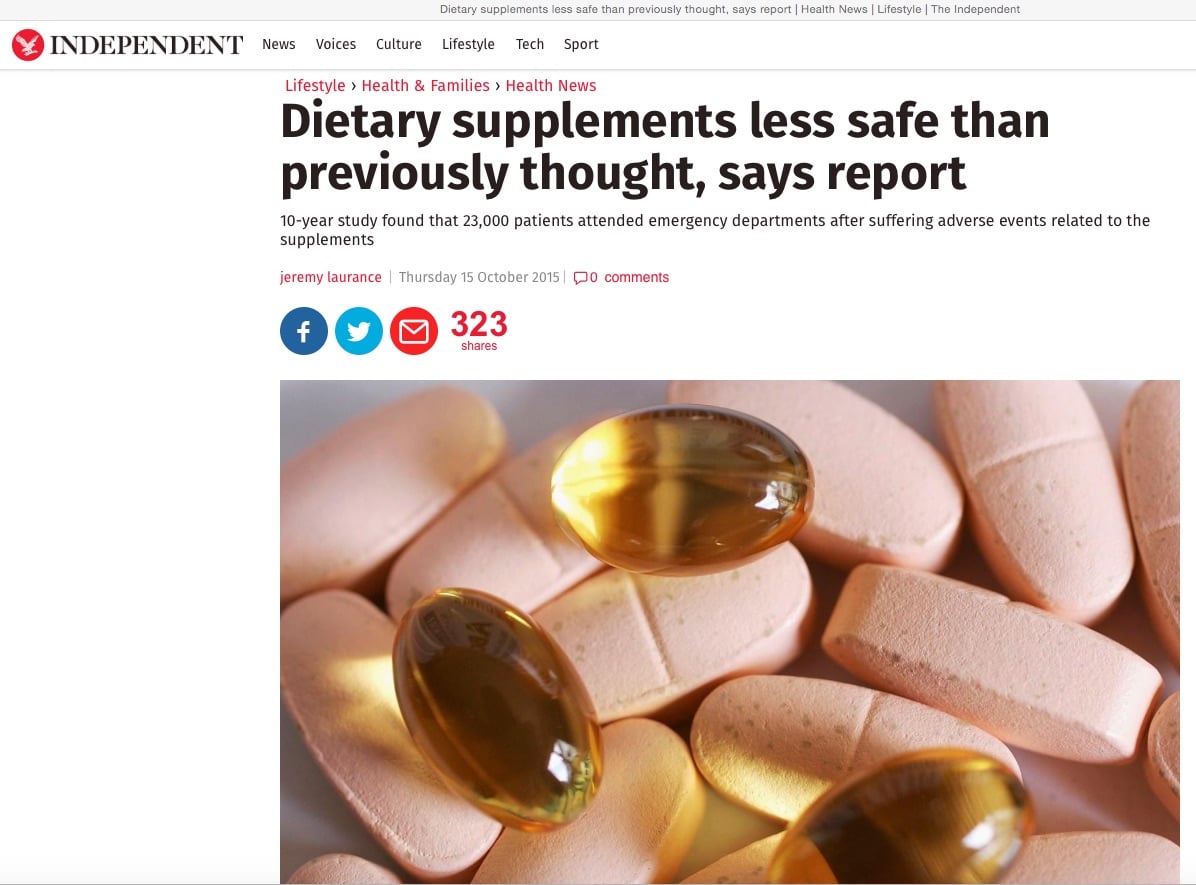Industry and nutrition figures on both sides of the Atlantic have vouched for the safety of dietary supplements after a US study showed that supplements use leads to 23,000 emergency visits to hospitals annually.
The study, published in the New England Journal of Medicine – and reported on by the UK press – is based on 3,667 cases collected at 63 US hospital emergency departments. It shows that around 28% of admissions to hospital in the US for adverse reactions from supplements led to hospitalization.
The commonest reactions were cardiovascular in nature – including chest pain, racing heart and palpitations – and in nearly all cases were always triggered by weight loss, energy and sexual enhancement products rather than dietary supplements. However, mild to moderate allergic reactions to vitamin pills were also common, as were swallowing problems (accounting for 41% of adverse events).
Putting the issue into perspective, US trade body The Council For Responsible Nutrition said that 23,000 emergency department visits translates to “far less than one-tenth of percent” of consumers who use supplements.
Leading nutritionist and author, Patrick Holford, told Natural Products News:
“The vast majority of adverse events were to weight loss, energy and sexual enhancement supplements. We are talking about ‘natural’ stimulants, which are neither allowed in the UK, nor would I ever recommend them. Too much caffeine, which many of these products contain, would do exactly the same thing.
“ … there is nothing at all serious by nature here. Meanwhile, the American Association of Poison Control has issued its 30th annual report. Yet again, not one single death from a supplement – for 30 years! The same is true in the UK.”
Graham Keen, executive director of the Health Food Manufacturers’ Association, said: “As an industry, we are proud to hold a strong track record for the safety and efficacy of vitamin and mineral supplements. This is backed up by science and decades of positive consumer experience.”
According to Food Standards Agency data from June 2014, said Keen, there has been an average of just eight reported adverse reactions from food supplements per year over the last 14 years in the UK.





